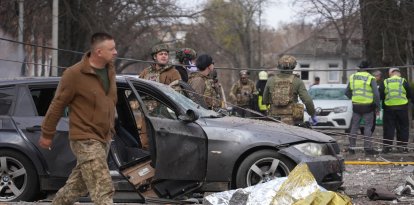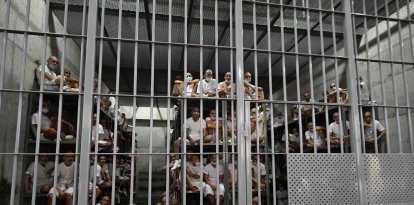Pro-European opposition calls for strong demonstrations against rapprochement with Russia in Georgia
Since last Friday, Georgian civil society has been mobilizing in the capital, Tbilisi, in favor of a pro-European stance and discussing the results of the last elections, which were won by the pro-Kremlin ruling party.

Pro-European demonstrations in Tbilisi, Georgia.
Georgian civil society again took to the streets in rejection of the government's rapprochement with Russia. Thousands of demonstrators clashed with law enforcement in the country's capital, Tbilisi, and were met with harsh retaliation. They are calling for a shift in Georgia's international policy to turn its back on the Kremlin and take a more pro-European stance.
The demonstrations, which began last Friday, take place after a general election that the ruling party close to Putin won. For the Europeanist opposition coalition, the election result was a cold shower, and despite the objections, it was endorsed by the electoral authorities and international observers.
According to reporters, the thousands of demonstrators occupied several streets and squares in the center and surrounded government buildings. In response, the authorities deployed a strong police force which, among other means, used water cannons and tear gas to repel the demonstrators.
The protests erupted Thursday night, when the government, accused of pro-Russian authoritarian drift, decided to postpone until 2028 any European Union accession negotiations, although it assured that it intends this to take place by 2030.
The decision led the pro-European opposition to call for demonstrations, both in the capital, Tbilisi, and in other cities across the country since Thursday, according to the Mtavari television channel.
Friday night's protests resulted in 107 people arrested for "disobeying police orders" and for "acts of vandalism," the Interior Ministry said, according to data gathered by AFP.
European Union condemns violence against demonstrators
"The European Union, of course, supports the Georgian people in their choice of the European future. It is clear that using violence against peaceful demonstrators is not acceptable," Kallas said during a visit to Kyiv.
"The government must respect the will of the Georgian people, but also the Georgian Constitution," he added.
The senior official, a former prime minister of Estonia, advanced that the situation in Georgia will be addressed by the EU countries, and noted that the juncture "will have consequences" on the European bloc's relationship with Georgia.
"We have a list of things we can do, but, of course, we have to discuss," said Kallas, who mentioned among the options the possibility of sanctions.
"We have options of sanctions, we have options of addressing also the visa regime, different options, but of course we have to reach an agreement," she said.
RECOMMENDATION





















